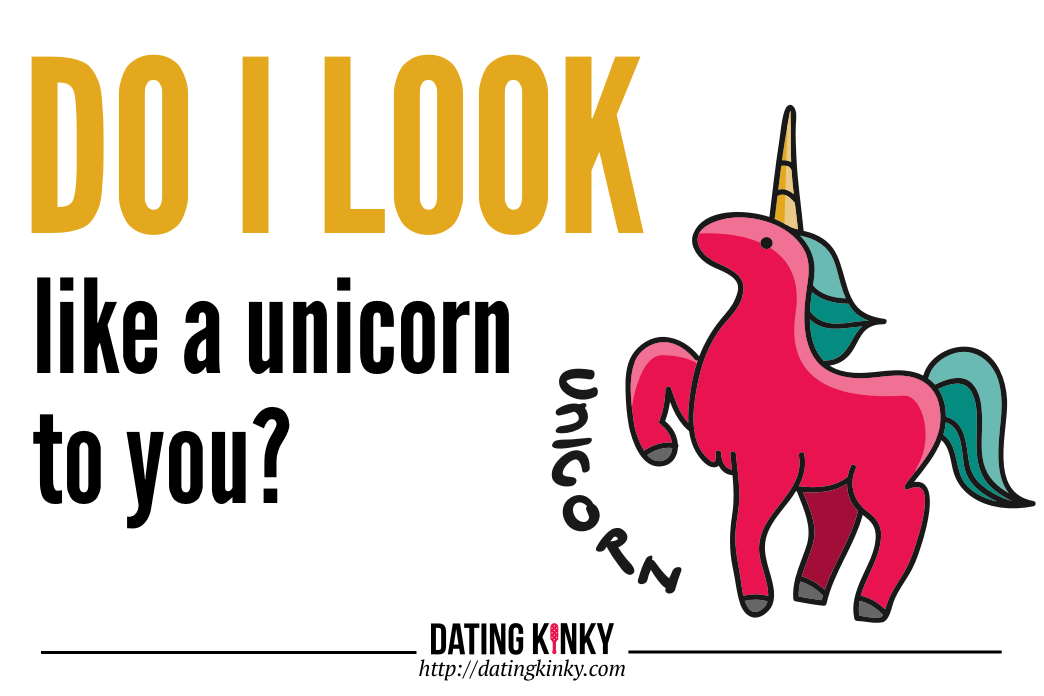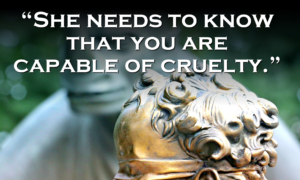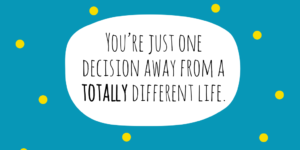This writing is now available as a podcast episode!
Unicorn Hunting is a touchy term in Polyamory circles.
So many single women have gotten burned by couples looking “for a third,” and then…well, I’ll get to this.
One of the biggest challenges surrounding this topic is, in my view, the communication of it.
As is often the case in specialized communities, non-monogamy and polyamory groups use language in ways that people outside those groups have hard time understanding.
Heck, we do this in kink. Using “dominant” as a noun and attaching many things to the concept WAY beyond what a vanilla person is likely to have come across in their daily life and living has led to much confusion.
But back to unicorns and hunting.
A unicorn in this case is a bisexual woman open to dating a couple as a triad.
Hunting in this case is the action of a couple seeking said unicorn.
Easy-peasy, right?
Yes.
Until you try to communicate with those “in the know,” and suddenly, it seems like you have veered off course into whakadoo land, because you have NO IDEA what they are railing about.
Unless you do.
Because Unicorn Hunting, as a concept in ENM and polyamorous communities is greater than the sum of it’s parts.
It doesn’t just mean “looking for a third who happens to be a bi woman willing to date us as a couple in a triad.”
It now refers to that looking AND to a range of problematic behaviors that often accompany that looking that remove the “ethical” from “ethical non-monogamy.”
Here are a few highlights:
- The couple is a traditional cis-het man/woman couple.
- They are likely less experienced in any forms of ENM than most others.
- If they do have experience, it’s likely limited, and incomplete.
- The couple makes the “rules” of relationship engagement without input from the unicorn. Often even after a relationship has grown.
- There is a one penis policy in place, either explicitly or implicitly.
- There is a rule or at least a strong expectation about the couple progressing at the same pace at all times in emotions and commitment feelings.
- The relationship is kept discreet, thereby preventing the unicorn being included in normal family or work events, possibly even keeping the relationship secret from mutual friends.
- The couple expects their “unicorn” to be both sexually and romantically exclusive.
- They also demand that the unicorn is attracted to them both equally and interested in only having group sex.
- The couple are not looking to bring her fully into their relationship because that might put her between them.
- The couple always takes precedence over the unicorn.
These things are rarely spoken up-front, but instead the relationship is allowed to progress “naturally,” and these things are brought up as they are relevant, often causing pain and conflict, because really, the unicorn was NOT told what she was signing up for, and feels dehumanized and boxed in to a role, instead of feeling like her personhood is being taken into account.
After all, the couple has usually negotiated the terms of the relationship before the unicorn even exists. The box she’ll have to live in has been partially built before they even know her name. If she’s looking for something different, she may not even be aware that’s off the table, until it becomes a problem in the relationship.
It really boils down to a lack of consent.
“Well, she had to know the risks.”
No, she didn’t.
There are people out there who don’t practice this sort of hierarchical relationship style.
And it’s SOOOO easy to get caught up in the NRE—the couple does it, not even bringing up all that they had talked about, to not ruin the mood, or because it slipped their mind until something was about to go sideways (or did).
There’s more, of course. I’ll probably write more about this. However, I think the critical point has been made:
Unicorn hunting does not just refer to a couple looking for a unicorn.
It refers to that whole host of problematic behaviors and more.
Ok, Sure. But What’s a Minotaur?
The guy version of a unicorn. Also called a dragon.
Same thing happens here, although it’s LESS often. Minotaurs or dragons are far more rare.
Bull Procurement?
So, yeah. In cuckolding and hotwifing, the second guy is often called a bull.
- He is not necessarily bi (although he may be—he is there primarily for the woman of the couple).
- He knows up front the status and primacy of the couple (or not—some couples do look for a bull to take over and dominate the relationship).
- Often a 100% transactional relationship.
The primary difference here is that there’s communication and that the relationship itself holds different expectations for the parties FROM THE BEGINNING.
They may be mutually using each other to get off.
They may become FWBs.
But whatever it is is usually discussed at the outset, rather than dating someone and dangling a relationship and equal footing, then slowly choking that option off through a series of couple-created rules that build as time goes on.
I’m not saying this doesn’t happen, ever. Or that feelings don’t spring up where there was originally a transactional agreement.
They do.
But it’s more of an exception than a rule in this case.
What are your thoughts?
Have you had experiences as a unicorn? A minotaur? A bull?
What about as the couple in any of these situations?
What have your experiences been? Have you had any positive experiences that transcended the problematic patterns noted here?









4 Responses
I think that’s terrible to do to someone it’s sad that it goes on everywhere within whatever communities. I think that things should always be brought up ASAP before agreements to any type of relationship develops. that type of couple relationship you have fully explained is bull crap.
Yes, it is.
To be fair, most people don’t even realize what they are doing, because they aren’t really thinking of the other person…because they can’t.
And I don’t know if that actually makes it better or worse, LOL!
So, I’ve spent about a decade of my life in poly relationships as a “unicorn.” I’ve experienced every single one of the issues you’ve mentioned, and many more. I used to be quite passionate about this topic, to the point that I wrote a manual (A Guide To Hunting Unicorns: By A Unicorn) as well as co-wrote a bill of rights with a poly Domme friend (Unicorns Have Rights, Too).
What I would say is that I very much agree with you, that this is an issue of both consent and communication. There is nothing quite like getting months or years into a relationship only to realize that it’s not what you thought it to be, that you’re not valued the way you thought you were, and further that the only option you have if you want to continue onward is to try to fit yourself into this preconceived box – this hurts so much and it feels like the worst kind of deception even when that’s not what was ever intended. And it is all even more complicated and taxing when there is a power exchange dynamic involved.
Would I have entered into any of my partnerships, had I known the fine print honestly up front? With the exception of one, no. That one could have been beautiful had we been able to prevent the damage rather than try to mop it up, because we were actually compatible. My relationships were all with pretty wonderful humans, and I have few regrets in general, but the experiences collectively took quite a toll on me. I’m coming out of a 4+ year break from all things poly, because my heart needed some time.
All of that said, the first time I ever fell in love it was with a couple; I was 19 and that relationship lasted 3 years. There is so much good in these types of relationships, and I believe that they can be healthy and supportive for all if they begin with honest communication that can then lead to informed consent. I’m really grateful you’re talking about this.
Thanks.
I think that one thing many of us are not good at is DIGGING up the truth. Because we often really don’t want it at the beginning.
*smiles*
And that’s not blame. After all, it takes two to tango, three to…well…more of whatever. It’s just how we are wired. We don’t want to know the potentially negative stuff too soon. It’s a delicate balancing act between horrible truth and denial.